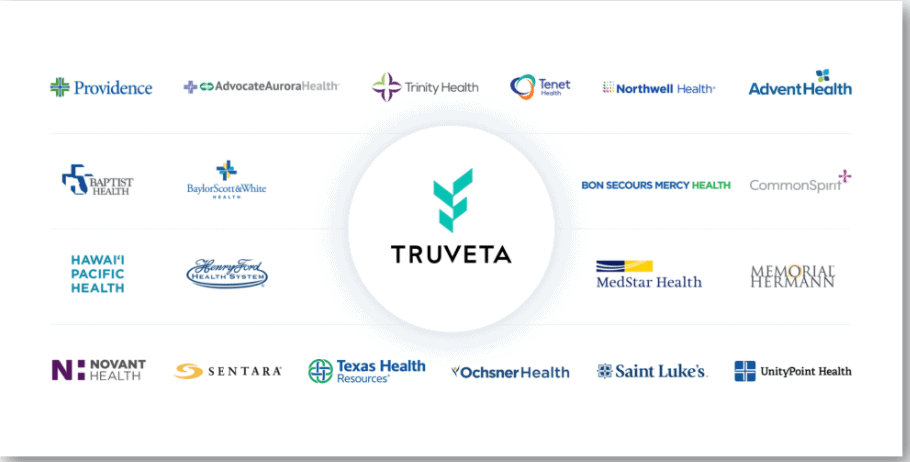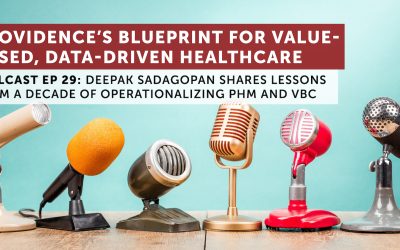Epic’s Powerful Database Continues Its Rise
Key Takeaways
Epic’s Cosmos database now includes nearly 140 million clinical patient records, representing over 2.2 billion encounters. The scale of Cosmos means that it could provide a very important tool for both precision medicine and public health in the coming years.
The growing interest in such research-ready clinical datasets has spawned a number of newer platforms including Allscripts’s Veradigm, Cerner’s Envisa, Health Catalyst’s Touchstone and the provider-led consortium, Truveta. To date, none of these have achieved the scale that Epic has, and it may be a heavy lift to ever compete on this scale given Epic’s market share.
Cosmos has only a limited number of clinical decision support applications, but is demonstrating public health impact through research collaborations and published research. It is clear that population-level studies of major public health issues, from COVID-19 to cancer screening, can be generated more rapidly via Cosmos than most public health organizations at state and national levels. As additional tools are developed, it will be important to look for new platform (i.e., two-sided market opportunities) that Epic could exploit.
Introduction
The Chilmark Research team had an opportunity to meet with Epic at HIMSS22, and we were quite impressed with the progress of Epic’s Cosmos. The size of its clinical database may make it the largest of its kind, certainly rivaling those from IQVIA and TriNetX, the leaders in real world data (RWD).
Epic has also created Epic Health Research Network (EHRN) to leverage Cosmos for insights and data analysis that can be released into the public domain much faster than peer-reviewed research publications. It is also important to note that the database does not contain unstructured data and has been de-identified (16 features of identities are removed before inclusion in Cosmos). Further, these datasets are not allowed to be sold to third parties. Cosmos is only accessed by a member through a secure portal. Epic has also created an elected board that oversees governance of the database.
A Step Towards Personalized Medicine
We received a brief demo from Jackie Gerhart, who demonstrated how Cosmos works at the interface of the EHR for clinicians. The value here is that having access to such a large database gives the clinician a chance to draw on the data from a huge swath of patients for informing clinical decision-making. For example, a physician may have a patient with hypertension and diabetes who is a given age, weight, and smokes. The physician can input these data into a query with parameters into Cosmos and instantly see a rank order of medications that have worked on patients with this profile. Cosmos will also provide additional insights such as how fast the medications worked, for example.
For rarer conditions or multiple co-morbidities, this is extremely useful. The average physician may only have a limited number of patients in their experience with rare disorders and subsequently little experience to draw upon. Gaining access to far more patients and the evidence of clinical pathways enables them to practice far more effectively. We were quite impressed in how far Cosmos has come and the ability to set fairly granular parameters on searches. Being able to see the outcomes associated with treatments further improves physician-patient trust as well.
Right now, the tools in Cosmos are focused on hypertension and diabetes, and Epic will gradually roll out tools for other diseases in the coming years. On this front, Epic appears to be taking it a bit more slowly, letting clinical researchers uncover insights in the data that Epic can later programmatically provide in the future.
Cosmos may also be useful in validating AI/ML algorithms. There have been many clinical AI algorithms that have proven more difficult to deploy, due to issues with initial training data, which is often of insufficient size and diversity. But Cosmos may have the potential to help address that very same challenge by providing access to larger, training datasets with robust representativeness of larger populations easier. Although this particular application is not a sure thing, we will certainly be paying attention as this develops.
From the Individual to Public Health: Epic Health Research Network
Perhaps the most impressive impact of Cosmos to date has been in the realm of public health, where we are seeing a number of insights generated from data analysis that have a real impact. The key issue here may be speed. The CDC’s data collection efforts have proven to be quite cumbersome and not on par with needs of the healthcare ecosystem during the pandemic as we have seen on multiple fronts. EHRN has a major opportunity to help address this problem.
In December 2021, as Omicron was driving up COVID-19 infections, we learned that “breakthrough” hospitalizations from COVID-19 among vaccinated patients were occurring in much higher numbers with aging patients with chronic health conditions. This research was from hospital data collected and analyzed by Epic Research and the Kaiser Family Foundation.

In another study, EHRN discovered that by June 2021, cancer screenings for common cancers continued to plummet: breast cancer screening was down 29% from historical averages, colon cancer screening fell by 36%, and cervical cancer fell by 35%.
The ability to conduct these studies rapidly will continually improve as Epic develops Cosmos and curates the data for improved queries and analytics in the service of public health.
Conclusion
In the era when data is becoming the primary source of competitive advantage in virtually all industry sectors, within healthcare it has been a long slog. Across the industry, however, we are seeing a number of collaborations across health systems to aggregate larger datasets. Truveta is one such collaboration, but has a long way to go to match the scale of Cosmos. In addition, there are numerous competitors that have combined clinical and claims data, which adds further texture to the data.

We have been following the platform economics space for a while at Chilmark Research, and Epic frequently takes some hits for the lack of platform thinking. While Cosmos is in the early days, it is still a provocative question to ask what kind of platform play could potentially arise from Cosmos, as additional tools for analytics and clinical decision support are built and more partners engage. Cosmos already has some ties to the customer relationship management (CRM) platform they unveiled at HIMSS called Cheers. Platform thinking may be a long game in the EHR space and Cosmos has the potential to play an important role down the road in Epic’s own platform efforts.




Without inclusion of unstructured data, how can Epic claim to be providing personalized insights? Up to 80% of critical information is stored in unstructured clinical notes…
While I agree with you Elena that the clinical guidance provided by Epic needs to countered balanced with physician knowledge, especially as it applies to confounding factors, it is a step in the right direction and the NLP tools for notes extraction are improving. There is hope.